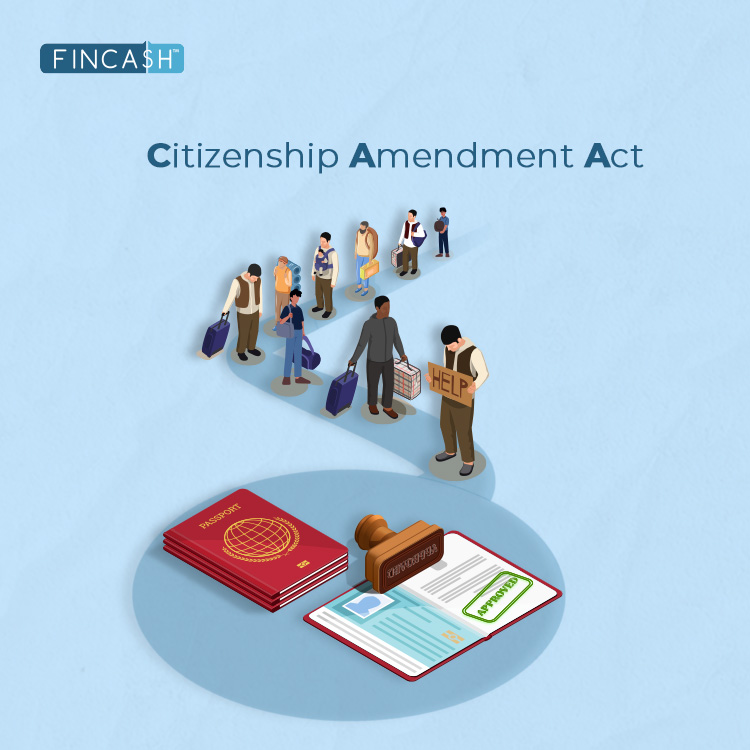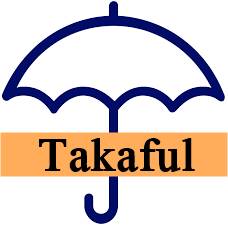
Table of Contents
- What is the Citizen Amendment?
- What is the New CAA Portal?
- Eligibility Criteria for Citizenship Application
- List of Essential Documents to Prepare
- List of Documents for Online Upload
- What is the Process for Applying?
- Prevention of Obtaining Indian Citizenship by Illegal Immigrants
- Important Provisions of the Citizenship Amendment Bill 2019
- Connection of CAA to NRC
- Concerns Regarding CAA
- Conclusion
Citizen Amendment Act (CAA) Meaning and Its Implications
On March 11, 2024, the Modi administration officially announced the regulations governing the Citizenship Amendment Act (CAA). Originally passed by Parliament in 2019 amidst widespread nationwide protests, the CAA streamlines the citizenship application process for non-Muslim migrants, encompassing Hindus, Sikhs, Jains, Buddhists, Parsis, and Christians, who migrated from Bangladesh, Pakistan, and Afghanistan and arrived in India before 2014. Despite its passage, the Act has encountered numerous setbacks and sustained criticism from opposition parties. Prospective citizens are required to apply through a newly established online portal, where they must disclose their year of entry into India without proper travel documents. Here is everything else you must know about this act.
What is the Citizen Amendment?
CAA stands for the "Citizen Amendment Act." Initially introduced in the Lok Sabha on July 19, 2016, this legislation proposes an amendment to the Citizenship Act of 1955. It aims to grant Indian citizenship to illegal migrants from various religious backgrounds, including Hindus, Jains, Christians, Parsis, Buddhists, and Sikhs, originating from neighbouring countries such as Afghanistan, Pakistan, and Bangladesh, provided they arrived in India on or before December 31, 2014. The Bill was passed in the Lok Sabha on January 8, 2019, and subsequently in the Rajya Sabha on December 11, 2019. However, it faced extensive criticism for being perceived as discriminatory based on religion, leading to various protests such as the CAA Protests, Citizenship Amendment Bill (CAB) Protests, and the CAA and National Register of Citizens (NRC) Protests.
Talk to our investment specialist
What is the New CAA Portal?
A new portal has been unveiled by the Home Ministry, headed by Amit Shah, to assist individuals applying for Indian citizenship under the CAA. Here, they must disclose their year of entry into India without proper travel documents. According to an official statement from the Home Ministry, a mobile application titled 'CAA-2019' will be introduced soon to enable applications through mobile devices.
Eligibility Criteria for Citizenship Application
Here are the eligibility criteria you must keep in mind:
The applicant must hold nationality from one of the following countries:
- Pakistan
- Afghanistan
- Bangladesh
The applicant must belong to one of the minority communities listed below within the respective country:
- Hindu
- Sikh
- Jain
- Buddhist
- Parsi
- Christian
The applicant must have entered India on or before December 31, 2014.
Persons of Indian origin who have been ordinarily resident in India for seven years before applying for registration are eligible. (A person is considered of Indian origin if they or their parents were born in undivided India or any territory that became part of India after August 15, 1947.)
Any individual who has resided continuously in India for the 12 months immediately preceding the application for registration or has been in the country for at least six years during the eight years immediately preceding the aforementioned 12-month period is eligible.
The applicant must demonstrate adequate proficiency in a language specified in the Eighth Schedule to the Constitution.
List of Essential Documents to Prepare
Below-mentioned are the essential documents that one should keep prepared:
An affidavit confirming the accuracy of the information provided in the application, along with a testimonial from an Indian citizen endorsing the applicant's character.
A statement from the applicant attesting to their proficiency in one of the languages listed in the Eighth Schedule to the Constitution.
Character and language proficiency are prerequisites for obtaining citizenship under the recently implemented regulations. The application procedure for naturalisation, delineated in Form VIIIA, necessitates the completion of various essential stages and submitting specific documentation.
List of Documents for Online Upload
Here is the list of documents you will have to upload:
- A copy of any document listed in Schedule 1A (Annexure – 1)
- A copy of any document listed in Schedule 1B (Annexure – 2)
- An Affidavit formatted as specified in Schedule 1C (Annexure – 3)
- A copy of a valid or expired Foreign Passport, if available
- A copy of a valid or expired Residential Permit, if available
- Evidence of the parents' date of birth, such as a copy of their passport or birth certificate. (If the passport of the mother/father is unavailable, the applicant's birth certificate must indicate the name, address, and nationality of the mother/father.)
What is the Process for Applying?
According to Section 6B of the Citizenship Act, 1955, individuals seeking registration or naturalisation must adhere to the following steps:
Application Submission: Applicants must electronically submit their applications to the Empowered Committee through the District Level Committee designated by the Central Government.
Acknowledgement: Upon submission, an acknowledgement in Form IX is automatically generated electronically.
Document Verification: The District Level Committee, led by a Designated Officer, verifies the documents submitted with the application.
Oath of Allegiance: The Designated Officer administers the oath of allegiance, as specified in the Second Schedule to the Citizenship Act, 1955, to the applicant. The signed oath, along with confirmation of document verification, is electronically forwarded to the Empowered Committee.
Consideration of Refusal: The appointed committee holds the authority to reject the application if an applicant fails to appear in person despite being provided with reasonable opportunities.
Renunciation Declaration: Each application includes a declaration by the applicant renouncing their citizenship of their current country, irrevocably and without any future claim.
Prevention of Obtaining Indian Citizenship by Illegal Immigrants
It is prohibited for individuals who are considered illegal migrants to acquire Indian citizenship. An illegal migrant is defined as someone who enters India unlawfully, lacking valid visa approval or proper documentation. Such individuals may have initially entered the country legally but overstayed beyond the duration specified in their visa applications and travel documents. In India, unlawful migrants may face various penalties, including punishment, arrest, fines, lawsuits, charges, expulsion, or imprisonment.
The government has protected certain categories of illegal migrants from being arrested or expelled, as evidenced by September 2015 and July 2016 measures. These include individuals who entered the country from Afghanistan, Bangladesh, or Pakistan before or on December 31, 2014. They identify themselves as belonging to religious groups such as Hinduism, Sikhism, Buddhism, Jainism, Parsi, or Christianity.
Important Provisions of the Citizenship Amendment Bill 2019
Here are some key provisions of the CAA Bill 2019:
The bill amends the Citizenship Act to provide provisions for migrants from Hinduism, Sikhism, Buddhism, Jainism, Parsis, and Christianity communities from neighbouring countries like Afghanistan, Bangladesh, and Pakistan who entered the country before or on December 31, 2014. These migrants are exempted from being considered unlawful migrants.
To avail of this benefit, individuals must have been exempted by the central government from the Passport Act of 1920 and the Foreigners Act of 1946.
The 1920 Act mandates immigrants to possess a passport, while the 1946 Act governs foreigners' entry and exit from India.
Citizenship can be obtained through registration or naturalisation, provided the individual meets specific criteria. For instance, if a person resides in India for a year and has at least one parent who was formerly an Indian citizen, they can apply for citizenship through registration.
One of the prerequisites for obtaining citizenship through naturalisation is that the person must have resided in India or served the central government for at least 11 years before seeking citizenship. However, the Bill makes an exception for Hinduism, Sikhism, Buddhism, Jainism, Parsis, and Christianity communities from Afghanistan, Bangladesh, and Pakistan, reducing the residency requirement to five years.
Upon acquiring citizenship, individuals are considered citizens from the day of their admission into the nation, and any legal records about their unlawful migration or nationality are concluded and terminated.
The amended act's applicability excludes tribal territories of Assam, Meghalaya, Mizoram, and Tripura, listed in the Sixth Schedule of the Constitution, covering areas such as Assam's Karbi Anglong, Meghalaya's Garo Hills, Mizoram's Chakma District, and Tripura's Tribal regions.
The act also does not extend to "Inner Line" territories regulated by the Bengal Eastern Frontier Regulation of 1873, where the Inner Line Permit administers Indian access.
The central government reserves the right to cancel the recording of Overseas Citizen of India (OCI) Cardholders under specific circumstances, including registration by deception, conviction of two years or more within five years after registration, or when it is deemed essential for India's territorial sovereignty and regional security.
Connection of CAA to NRC
The National Register of Citizens (NRC) is a comprehensive record of all lawful citizens. A 2003 amendment to the Citizenship Act mandated its establishment and upkeep. As of January 2020, the NRC was only operational in certain states like Assam, yet the BJP has pledged to extend its implementation nationwide as per its electoral promises.
By documenting all legally recognised citizens, the NRC aims to identify those lacking documentation, potentially categorising them as illegal immigrants or "foreigners." However, the Assam NRC experience reveals that many individuals were labelled "foreigners" due to insufficient documentation. There are concerns that the current Citizenship Act amendment provides a protective "shield" for non-Muslims, who can claim refuge from persecution in Afghanistan, Pakistan, or Bangladesh. In contrast, Muslims are not afforded the same privilege.
Concerns Regarding CAA
CAA is not devoid of issues and concerns. Here are some of the major concerns regarding this Bill:
- This legislation excludes Jews and atheists.
- It fails to address illegal migrants from other neighbouring nations of India, including Nepal, Bhutan, and Myanmar.
- The rationale behind the selected time frame in this legislation remains undisclosed.
- The focus solely on religious persecution is evident, as it does not include the Muslim religion alongside the other six religions. This omission has sparked numerous protests.
Conclusion
The CAA aims to revise the definition of illegal migrants outlined in the Citizenship Act 1955. While the Citizenship Act of 1955 allows for citizenship acquisition through five avenues—by descent, birth, registration, naturalisation, and annexation—CAA extends this provision specifically to persecuted minorities belonging to the six mentioned religions. Notably, the Muslim religion is not included among the six religions, which has led to significant protests and controversies.
All efforts have been made to ensure the information provided here is accurate. However, no guarantees are made regarding correctness of data. Please verify with scheme information document before making any investment.












